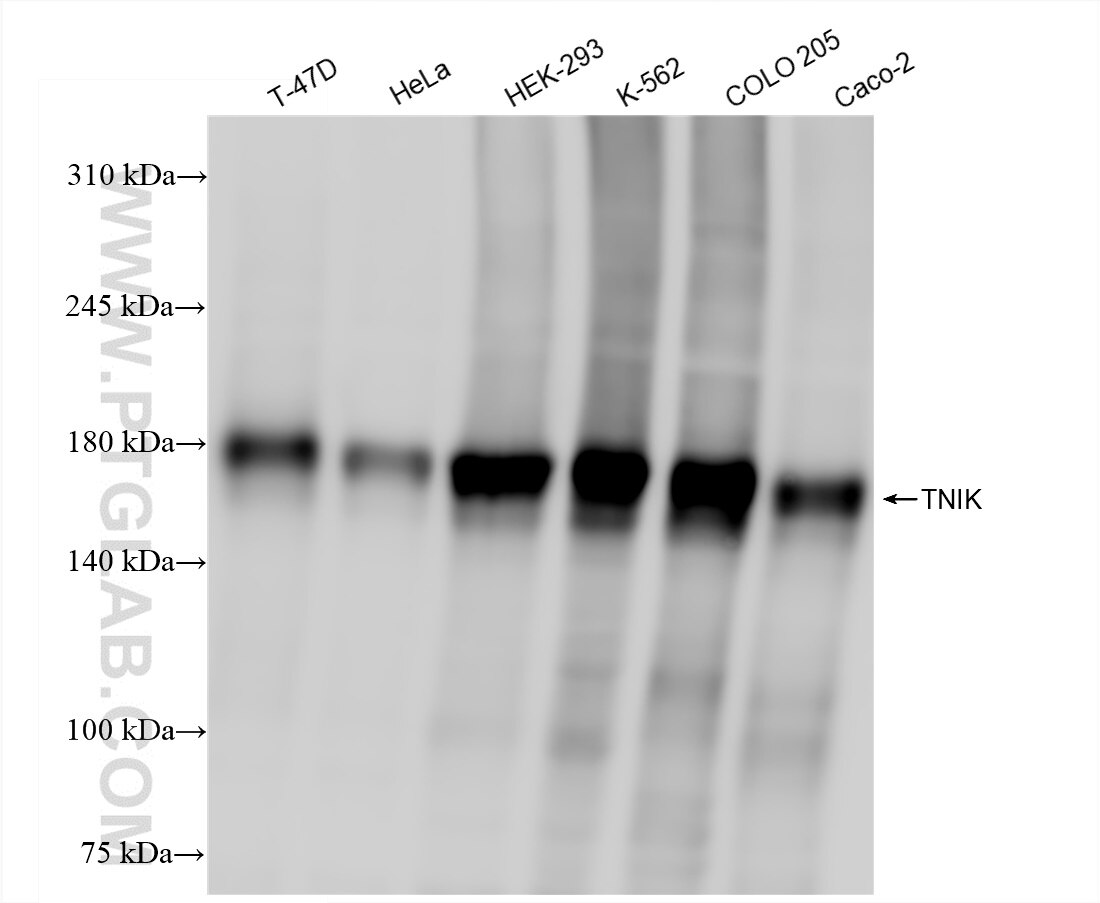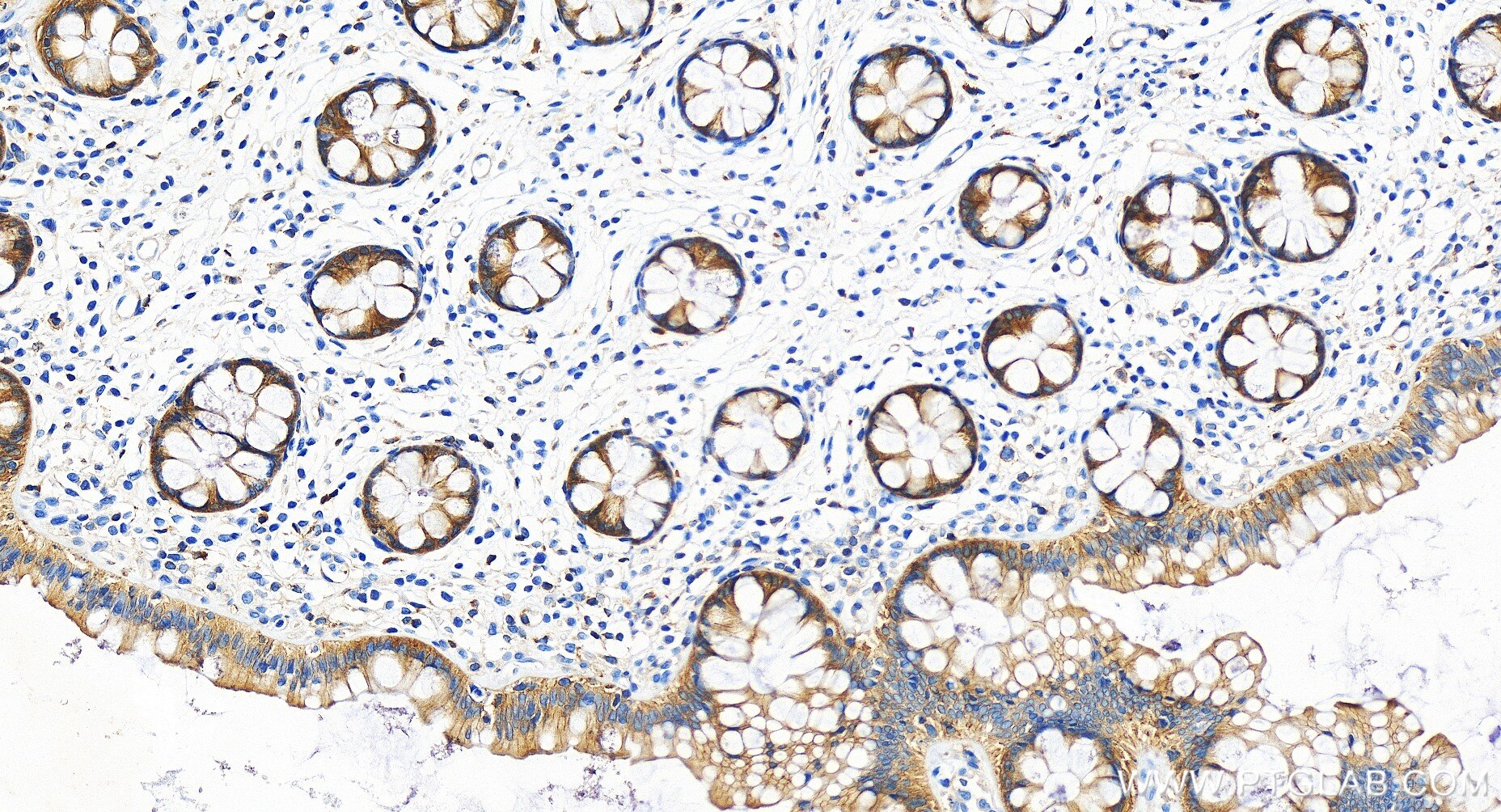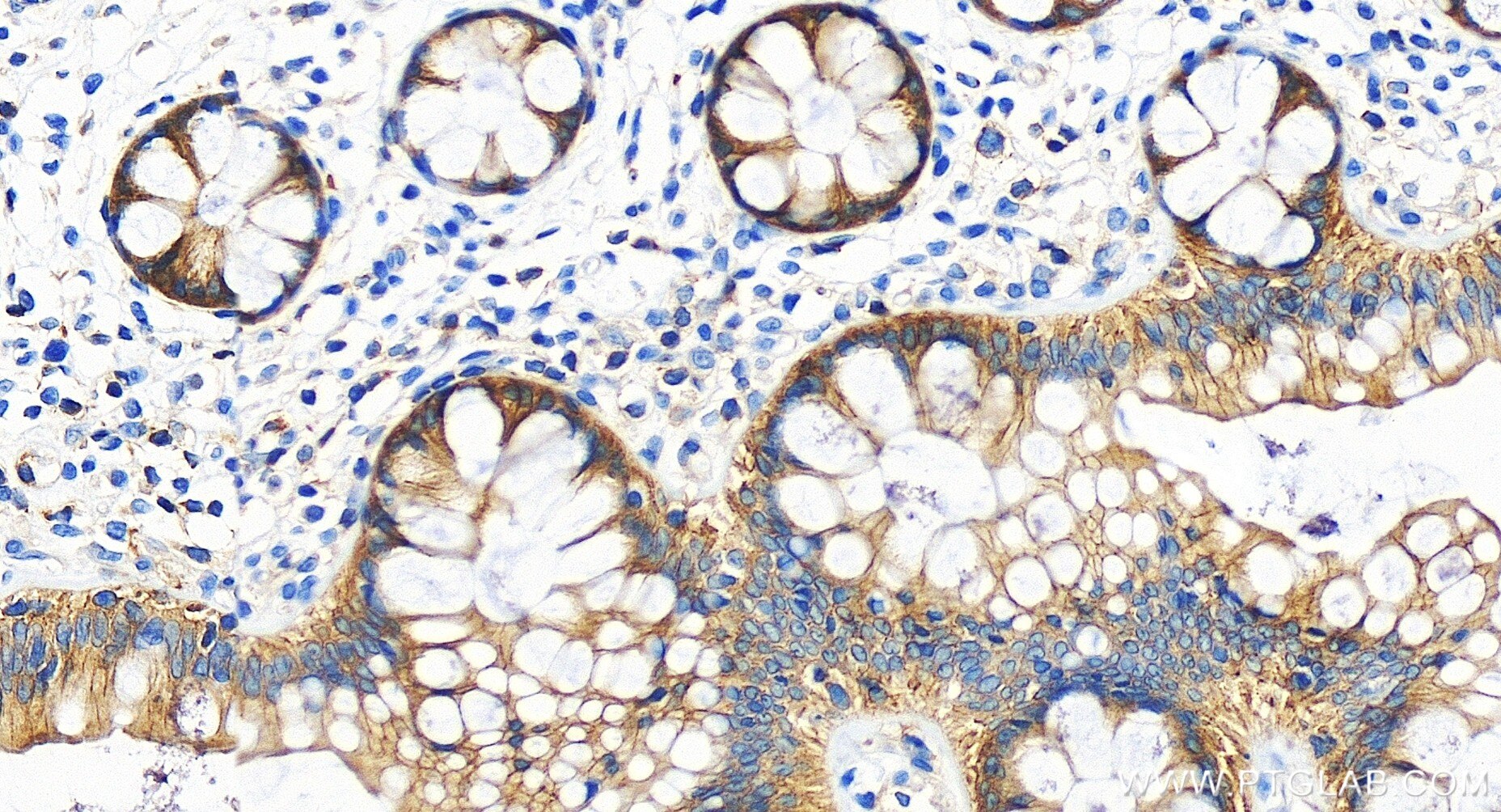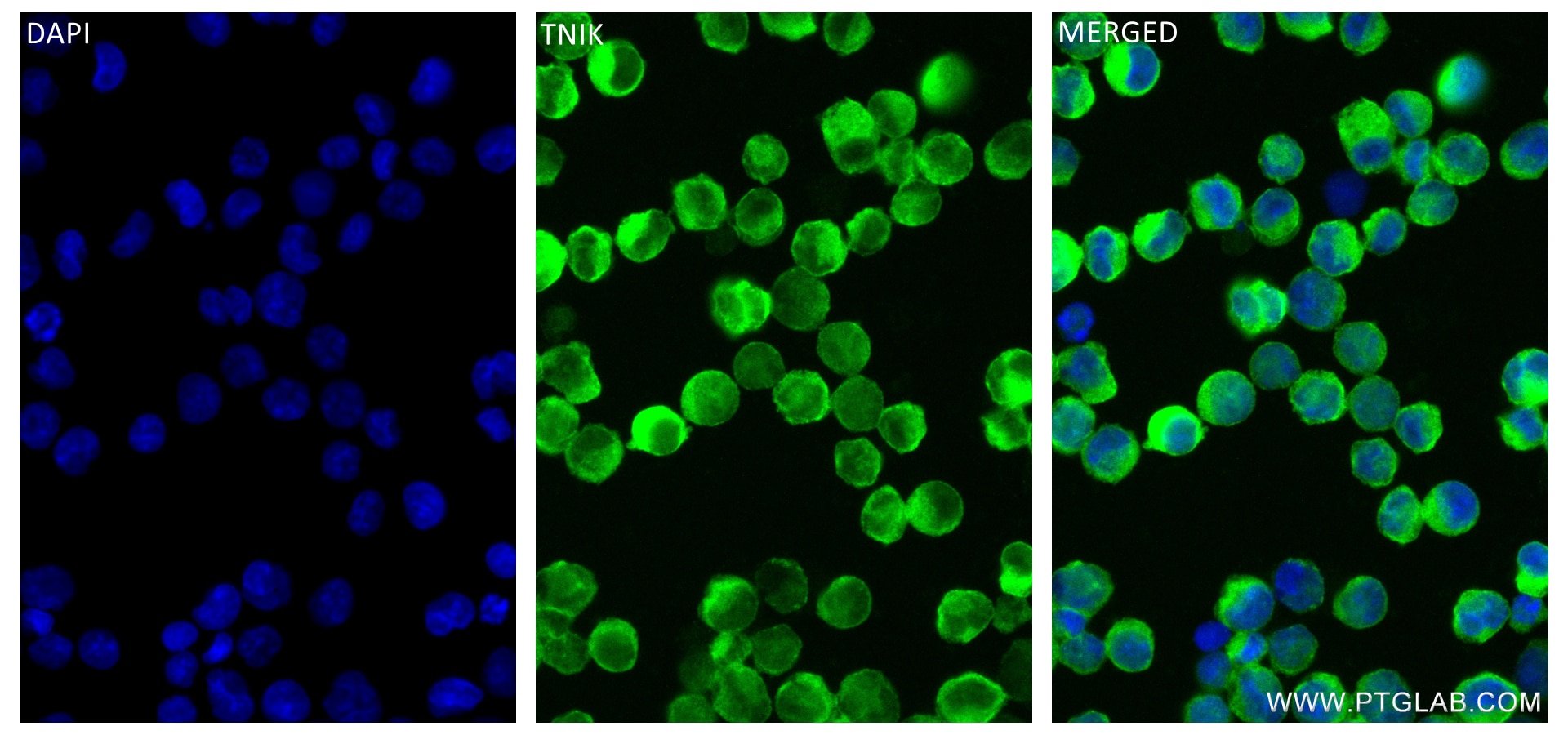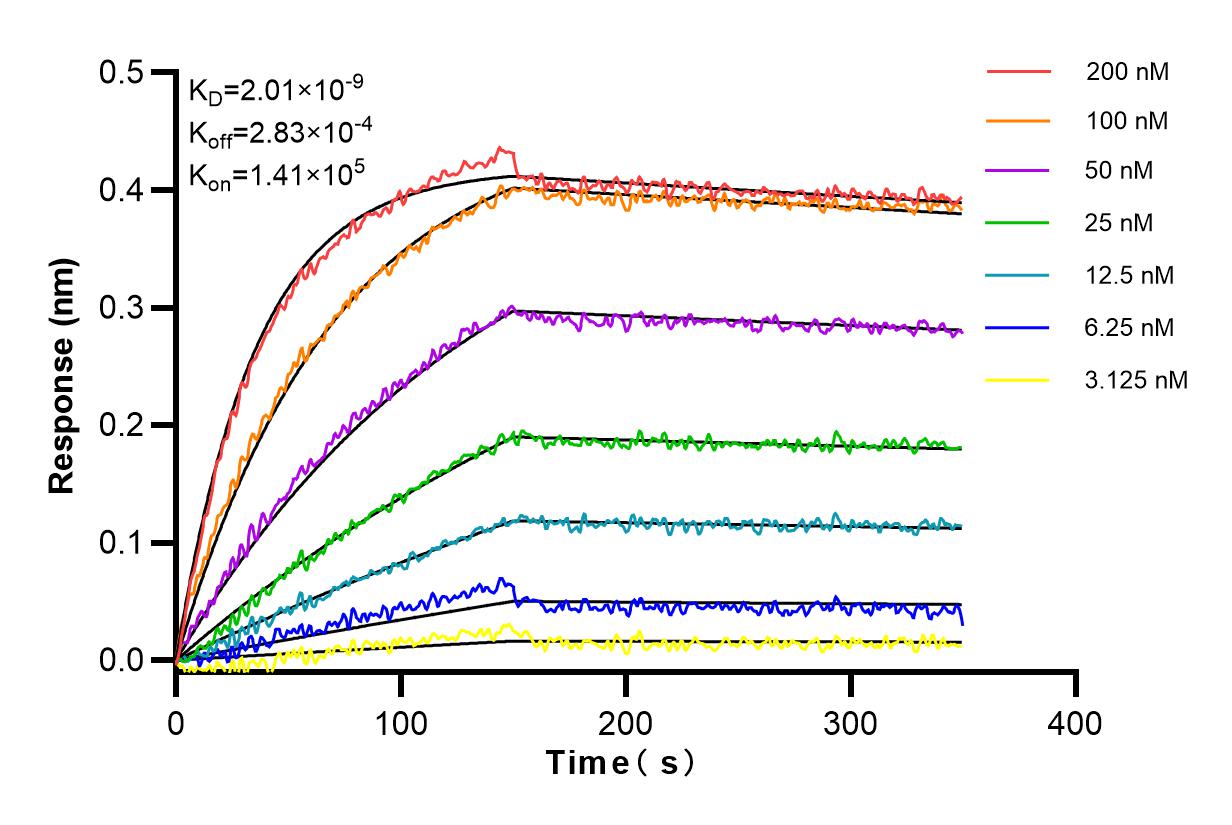Validation Data Gallery
Tested Applications
| Positive WB detected in | T-47D cells, HeLa cells, HEK-293 cells, K-562 cells, COLO 205 cells, Caco-2 cells |
| Positive IHC detected in | human colon tissue Note: suggested antigen retrieval with TE buffer pH 9.0; (*) Alternatively, antigen retrieval may be performed with citrate buffer pH 6.0 |
| Positive IF/ICC detected in | K-562 cells |
Recommended dilution
| Application | Dilution |
|---|---|
| Western Blot (WB) | WB : 1:500-1:2000 |
| Immunohistochemistry (IHC) | IHC : 1:200-1:800 |
| Immunofluorescence (IF)/ICC | IF/ICC : 1:125-1:500 |
| It is recommended that this reagent should be titrated in each testing system to obtain optimal results. | |
| Sample-dependent, Check data in validation data gallery. | |
Product Information
84231-4-RR targets TNIK in WB, IHC, IF/ICC, ELISA applications and shows reactivity with human samples.
| Tested Reactivity | human |
| Host / Isotype | Rabbit / IgG |
| Class | Recombinant |
| Type | Antibody |
| Immunogen |
CatNo: Ag34132 Product name: Recombinant human TNIK protein Source: e coli.-derived, PGEX-4T Tag: GST Domain: 585-636 aa of BC150256 Sequence: LRPVDPQIPHLVAVKSQGPALTASQSVHEQPTKGLSGFQEALNVTSHRVEMP 相同性解析による交差性が予測される生物種 |
| Full Name | TRAF2 and NCK interacting kinase |
| Observed molecular weight | 155~180 kDa |
| GenBank accession number | BC150256 |
| Gene Symbol | TNIK |
| Gene ID (NCBI) | 23043 |
| RRID | AB_3671785 |
| Conjugate | Unconjugated |
| Form | |
| Form | Liquid |
| Purification Method | Protein A purfication |
| UNIPROT ID | Q9UKE5 |
| Storage Buffer | PBS with 0.02% sodium azide and 50% glycerol{{ptg:BufferTemp}}7.3 |
| Storage Conditions | Store at -20°C. Stable for one year after shipment. Aliquoting is unnecessary for -20oC storage. |
Background Information
TNIK (Traf2- and Nck-interacting kinase) is one of the germinal center kinase family members involved in cytoskeleton organization and neuronal dendrite extension, which had been implicated in postsynaptic signaling as well as in regulation of cell proliferation. TNiK is expressed in the nervous system and plays key roles at the synapse and nucleus, In non-neuronal cells, TNiK has been described as a critical component of transcriptional regulatory mechanisms, mediated by Wnt signaling (PMID: 24566388). TNIK is also an essential regulatory component of the T-cell factor-4 and β-catenin transcriptional complex and is required for the tumor-initiating function of colorectal cancer stem cells (PMID: 10521462). Western blot analysis detected TNIK at an apparent molecular mass of 150~180 kDa as cited in literature (PMID: 24566388).
Protocols
| Product Specific Protocols | |
|---|---|
| IF protocol for TNIK antibody 84231-4-RR | Download protocol |
| IHC protocol for TNIK antibody 84231-4-RR | Download protocol |
| WB protocol for TNIK antibody 84231-4-RR | Download protocol |
| Standard Protocols | |
|---|---|
| Click here to view our Standard Protocols |

